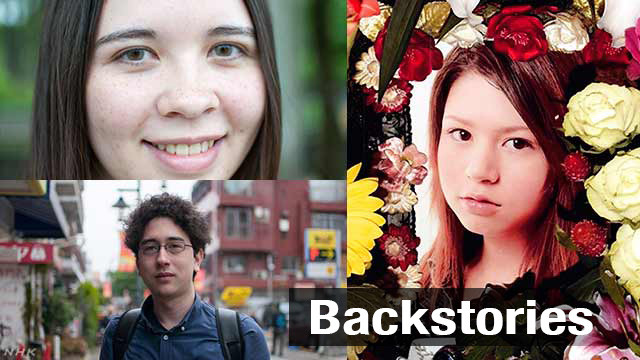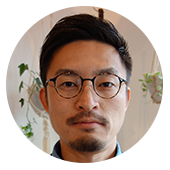At the same time, many Japanese believe this kind of discrimination is a thing of the past. They say that people who are half Japanese, or HAFU, are today a source of envy, not a target of bullying.
So why the big gap in public consciousness? We spoke to the founder of a website on the experiences of Japanese with a mixed cultural background.
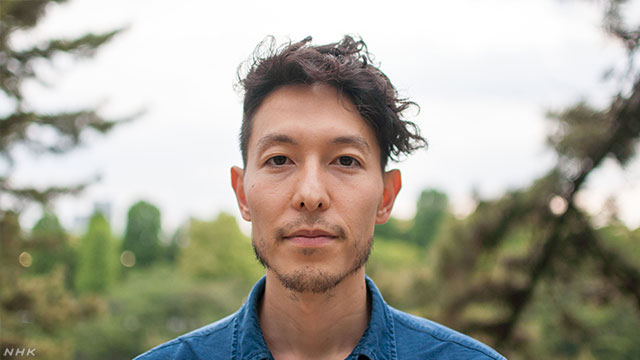
Lawrence Yoshitaka Shimoji started "HAFU TALK" in June last year. His American grandfather was stationed in Japan with the US military and his grandmother was from Okinawa.
As a sociologist, Shimoji studies the experiences of people of mixed heritage. He explained why he started the website.
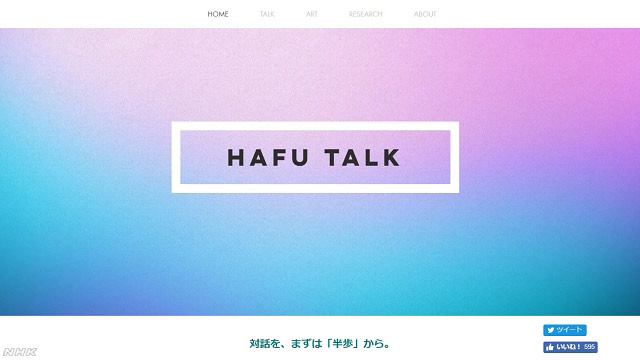
"Even though the term HAFU is widely known, my study of public awareness suggests there is little knowledge, beyond the stereotype, of who these people really are."
Shimoji said a study back in 1987 found there were at least 840,000 people of mixed heritage in the country. He says there are around 20,000 newborns of mixed heritage every year. That's one in every 50 births.
Nevertheless, research on their life experiences is scarce, compared to the study of Koreans in Japan and Japanese Brazilians.
"Immigration research in Japan has focused on foreign nationals, not on culturally mixed Japanese nationals."
Shimoji says this prompted him to create a place for so-called HAFU, their parents, teachers and anyone else interested in the subject, to share this information with the larger community.
Shimoji's mother was born of a Japanese mother and American father. He says his mother claims she has never been discriminated against, but he believes she is still viewed as a foreigner.
"Whenever I ask my mom about her hardships as a HAFU, she says she has never faced discrimination and that lots more people have had much more bitterness in life than that."
He adds that even though she is in her sixties, people still tell her that her Japanese is good, and ask her when she first came to Japan.
"This tells me that people not only know very little about the subject, they also have a fixed and oversimplified idea of what it means to be Japanese."
Shimoji said he was never very conscious of his cultural roots until he had an experience that stunned him. He said an older student at his high school said his grandmother wasn't married when she gave birth to his mother. "So your mom was born of a slut," he was told.
Shimoji said this stereotype is typical of how a Japanese woman is viewed if she has a child-bearing relationship with an American military man.
So what is the experience today of Japanese of mixed parentage? Shimoji says he has learned through his research and his experience with the website that some are under heavy psychological pressure and that the "half" stereotype and consequent bullying persists. He says the social prejudice remains and conjures an image of being half white, and that Japanese with Philippine and African roots also suffer. "Those who are half African or Arab say they often get stopped by police." Shimoji said one of them told him it would be different he had a "normal" Japanese face.
He says Japanese Caucasian women suffer from the stereotypical belief that they are more attractive, while those with Korean and Chinese heritage face a different problem. Some of them can't express their true identity, because they don't look any different from Japanese.
Shimoji says it can be difficult for the children of mixed heritage to share their difficulties with their parents, because they don't want their parents to feel bad too. On the other hand, some blame their parents saying, "Why did you give birth to me" or "You're the reason why I get bullied."
Children who feel they can't share their difficulties with their parents might go to their teachers, but if the teachers can't help, there is no safe refuge.
While the renowned tennis champion Naomi Osaka is praised for her mixed Japanese heritage, news of a crime committed by a HAFU spirals into fear mongering about immigration. Shimoji calls this the image of the useful half versus useless half.
Some in Japan consider the expression HAFU discriminatory, but Shimoji says he chooses to use this label because just changing a name never changes the reality. He notes that when Naomi Osaka became famous, even the "New York Times" and the "Economist" referred to her as "HAFU". He says the original term was "Ainoko," meaning "crossbreed," and that eventually this term was viewed as discriminatory and replaced with the words half, double or mixed.
"Names changed over time but the situation surrounding them has not," he said. "I thought we could reach more people with the term that is more widely known." But he said they chose the Japanese word "HAFU" to avoid the discriminatory connotation of the word half. "Our wish is to bring people closer to each other by a half step and share half and half."
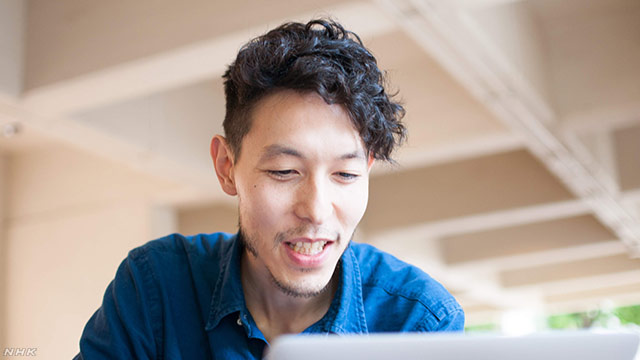
Japan's government has revised the immigration control law to allow more foreign workers into the country starting next April. Shimoji says this could eventually lead to an increase in the percentage of mixed heritage Japanese in the country.
"We now have many communities of Japanese and South American mixed heritage, or Japanese and Filipino who were granted residency in the late '80s. Some are popular in the show business. Considering that more and more workers are coming in from Vietnam and Nepal, it's possible that we will see half Japanese like this a few decades ahead."
But Shimoji warns that the bullying and discrimination cannot be overlooked, or the problems will only get worse. "The problem is not with the foreigners but with Japanese themselves," he says, adding that it's time to stop and think about how to put an end to discriminatory discourse.
